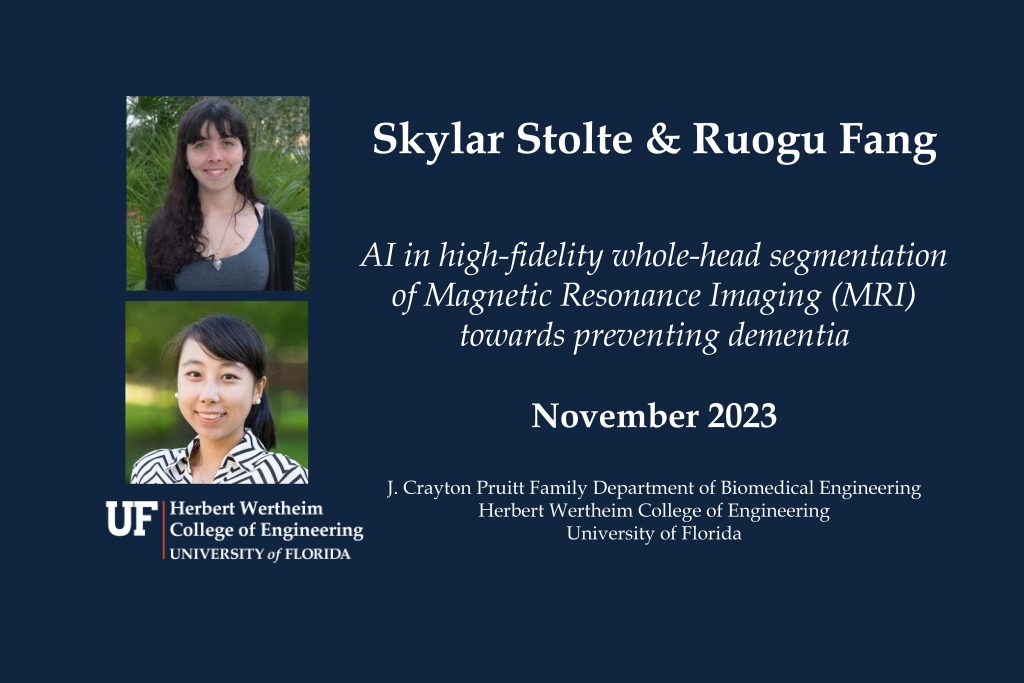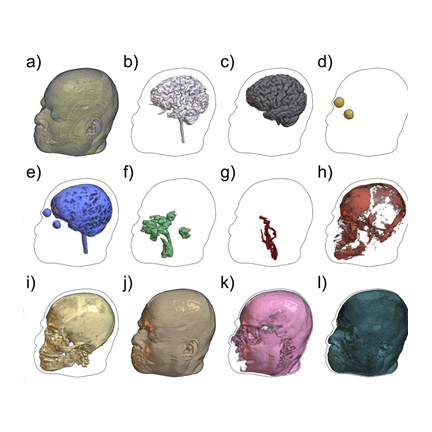Dr. Ruogu Fang, associate professor and J. Crayton Pruitt Family Term Fellow, and Ph.D. student Skylar Stolte have been awarded the UF Pioneering Research HiPerGator Award for their innovative use of AI in high-fidelity whole-head segmentation of MRIs, aiming to prevent dementia.
Fang and Stolte are advancing the field of preventive dementia care using artificial intelligence (AI). Segmentation, the process of subdividing an image into key components for further analysis, is crucial in brain imaging because different brain tissues have statistical properties essential for treatment planning and disease tracking. Dr. Fang and Stolte have developed GRACE [1], a tool that performs deep learning-based segmentation of 11 tissue types in whole-head Magnetic Resonance Images (MRIs). Unlike previous tools, GRACE is optimized for older adults, addressing age-related issues like brain atrophy. It significantly outperforms existing tools in accuracy and speed, segmenting a whole-head MRI in about 3 seconds compared to the 3 minutes taken by the fastest available software. 
In addition to GRACE, Fang and Stolte developed DOMINO [2,3] and DOMINO++ [4], tools that enhance the trustworthiness and reliability of machine learning models through model calibration in deep learning. This is crucial for providing accurate confidence assessments in high-risk applications. DOMINO improves upon GRACE’s tissue boundary detection by leveraging natural class similarities, allowing models to make more informed mistakes when wrong. DOMINO++ further enhances adaptability by enabling GRACE to handle variability in MRI imaging noise and scanners while achieving better accuracy. This is critical in dementia care due to the susceptibility of medical imaging to noise, such as motion issues.
Recently, Fang and Stolte have been building a digital twin model of non-invasive brain stimulation [5], specifically transcranial Direct Current Stimulation (tDCS). tDCS, a non-invasive brain stimulation technique, may alleviate dementia symptoms when paired with other interventions. They have developed a new deep learning method to generate electrical current maps directly from MRIs, streamlining the structural MRI to J-map simulation pipeline. This tool aims to lead to more effective and individualized tDCS interventions.
Together, these methods represent exciting advancements in medical imaging and brain stimulation.

